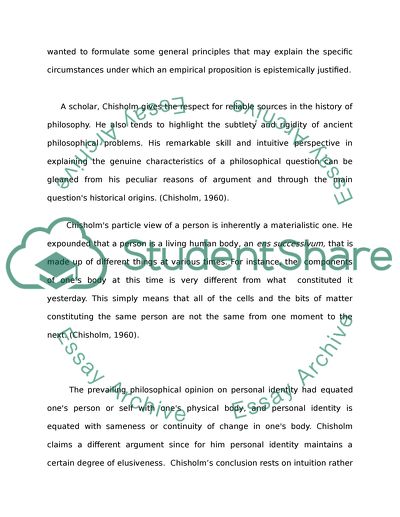Cite this document
(“Philosophy of Roderick Chisholm Book Report/Review”, n.d.)
Philosophy of Roderick Chisholm Book Report/Review. Retrieved from https://studentshare.org/philosophy/1508872-philosophy-of-roderick-chisholm
Philosophy of Roderick Chisholm Book Report/Review. Retrieved from https://studentshare.org/philosophy/1508872-philosophy-of-roderick-chisholm
(Philosophy of Roderick Chisholm Book Report/Review)
Philosophy of Roderick Chisholm Book Report/Review. https://studentshare.org/philosophy/1508872-philosophy-of-roderick-chisholm.
Philosophy of Roderick Chisholm Book Report/Review. https://studentshare.org/philosophy/1508872-philosophy-of-roderick-chisholm.
“Philosophy of Roderick Chisholm Book Report/Review”, n.d. https://studentshare.org/philosophy/1508872-philosophy-of-roderick-chisholm.


